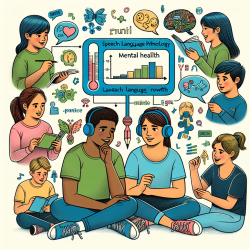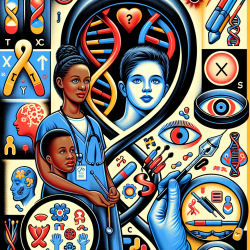The diagnostic process for Autism Spectrum Disorder (ASD) in Poland has been comprehensively explored in the research article "Resources, Problems and Challenges of Autism Spectrum Disorder Diagnosis and Support System in Poland" by Lenart and Pasternak (2021). This blog post aims to help practitioners improve their skills by implementing the research outcomes and encouraging further exploration in this field.
Key Resources for ASD Diagnosis in Poland
The research highlights several resources that bolster the diagnostic process in Poland:
- An increasing number of specialists and diagnostic centers.
- Well-established educational courses for professionals working with children.
- Standardized and normalized diagnostic tools such as ADOS-2 and ADI-R.
Challenges and Problems in the Diagnostic Process
Despite the resources, the diagnostic process faces significant challenges:
- Tendency of unauthorized diagnosis by non-medical professionals.
- Underestimation of comorbid conditions co-occurring with ASD.
- Need for better cooperation among specialists, teachers, and families.
- Lack of a unified and standardized diagnostic procedure.
Improving Diagnostic Accuracy
Practitioners can enhance diagnostic accuracy by:
- Ensuring diagnoses are made by authorized medical professionals.
- Employing standardized tools like ADOS-2 and ADI-R, which require specialized training.
- Considering comorbid conditions and avoiding diagnostic overshadowing.
- Adopting a multi-disciplinary approach involving psychologists, educators, and medical doctors.
Recommendations for Practitioners
To improve outcomes for children with ASD, practitioners should:
- Engage in continuous professional development to stay updated with the latest diagnostic tools and methods.
- Promote collaboration between diagnostic centers, schools, and families to ensure comprehensive support.
- Encourage early screening and intervention programs to enhance developmental outcomes.
- Advocate for standardized diagnostic procedures and ethical practices to avoid misdiagnosis.
Implementing these strategies can lead to more accurate diagnoses and better support for children with ASD, ultimately creating more positive outcomes.
To read the original research paper, please follow this link: Resources, Problems and Challenges of Autism Spectrum Disorder Diagnosis and Support System in Poland.










